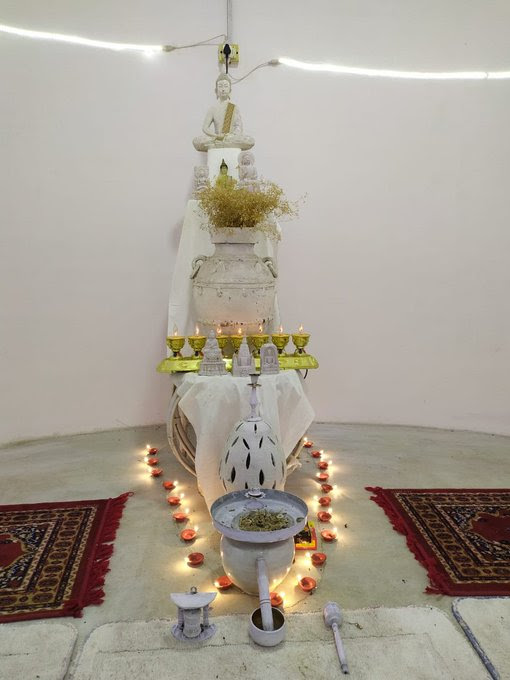Posted by: site admin @ 10:57 pm


Dr BR Ambedkar always stood in solidarity with the oppressed and worked to uplift the lives of women, labourers and untouchables




only did the Buddha actively teach to promote peace, he actively
prevented war too. - Stonepeace | Get Books In the Buddha’s time, the
Sakiyas (Sakyas) and Koliyas (Kolis) once directed the Rohini (Rohni)
river to to be constricted by a dam between the city of Kapilavatthu
(Kapilavastu) and Koli…
![]()

delivers the latest breaking news and information on the latest top
stories, picture gallery, business, situtation report and more.
sundaytimes.lk provides special video, udio, photo and galleries
![]()


anger, Be done with conceit, Get beyond every fetter. When for name
& form You have no attachment — have nothing at all — No sufferings,
no stresses, invade. -Kodhavagga; Dhammapada- The development of
effective measures to prevent deadly conflict begins with the
articulation of the prob…


https://tenor.com/view/lamp-
Nibbāna) is “blowing out” or “quenching” of the activities of the worldly mind and its related suffering
Nibbāna is the goal of the Buddhist path, and marks the soteriological release from worldly suffering and rebirths in saṃsāra.
Nibbāna is part of the Third Truth on “cessation of dukkha” in the Four Noble Truths, and the “summum bonum of Buddhism and goal of the Eightfold Path.
In the Buddhist tradition, Nibbāna has commonly been interpreted as the extinction of the “three fires”, or “three poisons”, greed (raga), aversion (dvesha) and ignorance (moha).When these fires are extinguished, release from the cycle of rebirth (saṃsāra) is attained.
Nibbāna has also been claimed by some scholars to be identical with anatta (non-self) and sunyata
(emptiness) states though this is hotly contested by other scholars and
practicing monks. In time, with the development of the Buddhist
doctrine, other interpretations were given, such as the absence of the
weaving (vana) of activity of the mind, the elimination of desire, and
escape from the woods, cq. the five skandhas or aggregates.
Buddhist scholastic tradition identifies two types of Nibbāna: sopadhishesa-Nibbāna (Nibbāna with a remainder), and pariNibbāna or anupadhishesa-nirvana (Nibbāna without remainder, or final Nibbāna). The founder of Buddhism, the Buddha, is believed to have reached both these states.
Nibbāna, or the liberation from cycles of rebirth, is the highest aim of the Theravada tradition. In the Mahayana tradition, the highest goal is Buddhahood, in which there is no abiding in Nibbāna. Buddha helps liberate beings from saṃsāra
by teaching the Buddhist path. There is no rebirth for Buddha or people
who attain Nibbāna. But his teachings remain in the world for a certain
time as a guidance to attain Nibbāna.
http://sarvajan.ambedkar.org
White Home

Lab


-
56) Classical Kazakh-Классикалық қазақ,57) Classical Khmer- ខ្មែរបុរាណ,58) Classical Kinyarwanda59) Classical Korean-고전 한국어,60) Classical Kurdish (Kurmanji)-Kurdî (Kurmancî),61) Classical Kyrgyz-Классикалык Кыргыз,62) Classical Lao-ຄລາສສິກລາວ,63) Classical Latin-LXII) Classical Latin,64) Classical Latvian-Klasiskā latviešu valoda,65) Classical Lithuanian-Klasikinė lietuvių kalba,66) Classical Luxembourgish-Klassesch Lëtzebuergesch,67) Classical Macedonian-Класичен македонски,68) Classical Malagasy,класичен малгашки,69) Classical Malay-Melayu Klasik,70) Classical Malayalam-ക്ലാസിക്കൽ മലയാളം,71) Classical Maltese-Klassiku Malti,72) Classical Maori-Maori Maori,73) Classical Marathi-क्लासिकल माओरी,74) Classical Mongolian-Сонгодог Монгол,75) Classical Myanmar (Burmese)-Classical မြန်မာ (ဗမာ),76) Classical Nepali-शास्त्रीय म्यांमार (बर्मा),77) Classical Norwegian-Klassisk norsk,
-
78) Classical Odia (Oriya)79) Classical Pashto- ټولګی پښتو80) Classical Persian-کلاسیک فارسی81) Classical Polish-Język klasyczny polski,82) Classical Portuguese-Português Clássico,83) Classical Punjabi-ਕਲਾਸੀਕਲ ਪੰਜਾਬੀ,84) Classical Romanian-Clasic românesc,85) Classical Russian-Классический русский,86) Classical Samoan-Samoan Samoa,
-
87) Classical Sanskrit छ्लस्सिचल् षन्स्क्रित्88) Classical Scots Gaelic-Gàidhlig Albannach Clasaigeach,
-
89) Classical Serbian-Класични српски,90) Classical Sesotho-Seserbia ea boholo-holo,91) Classical Shona-Shona Shona,92) Classical Sindhi,93) Classical Sinhala-සම්භාව්ය සිංහල,94) Classical Slovak-Klasický slovenský,95) Classical Slovenian-Klasična slovenska,96) Classical Somali-Soomaali qowmiyadeed,97) Classical Spanish-Español clásico,98) Classical Sundanese-Sunda Klasik,99) Classical Swahili,Kiswahili cha Classical,100) Classical Swedish-Klassisk svensk,101) Classical Tajik-тоҷикӣ классикӣ,102) Classical Tamil-பாரம்பரிய இசைத்தமிழ் செம்மொழி,








